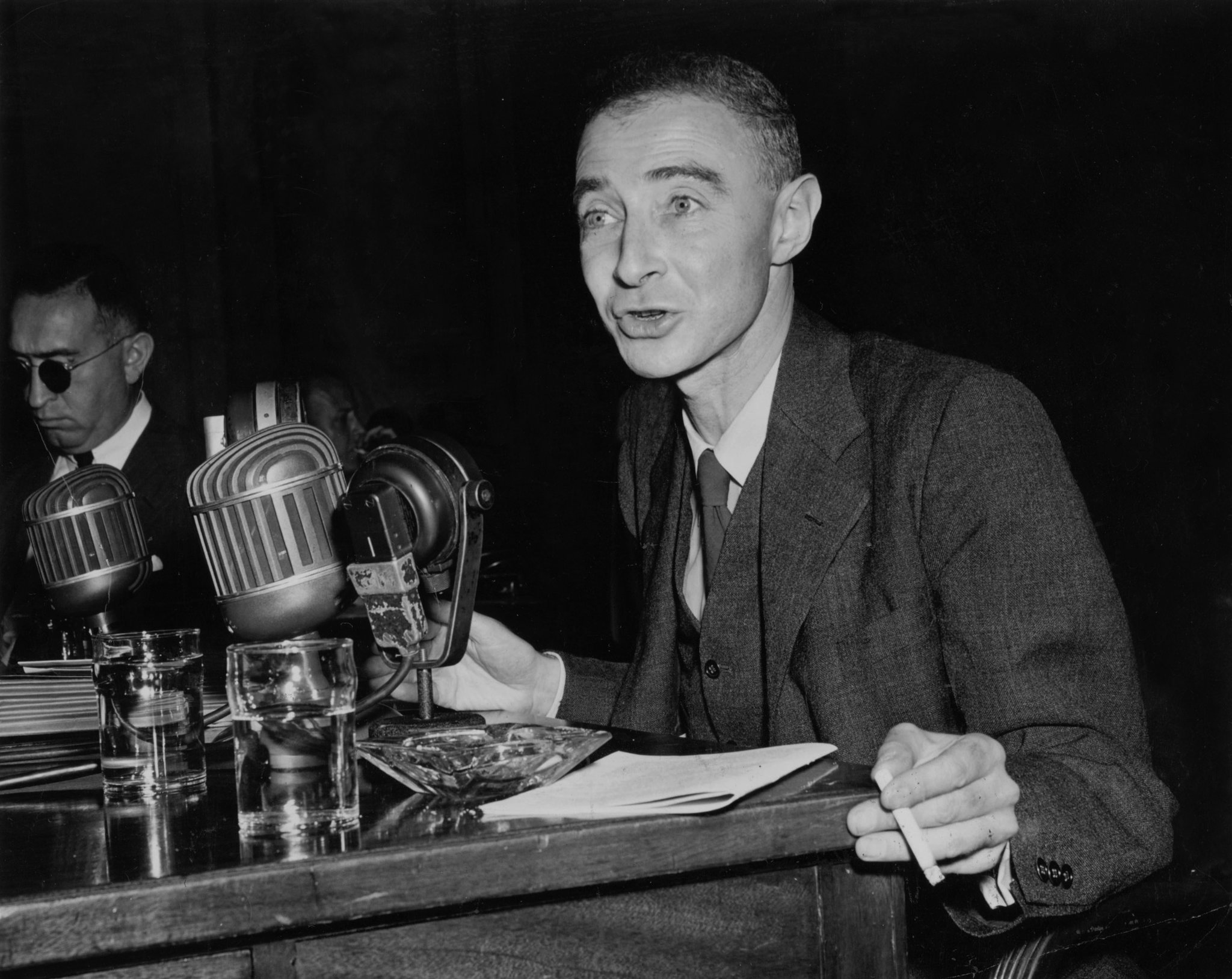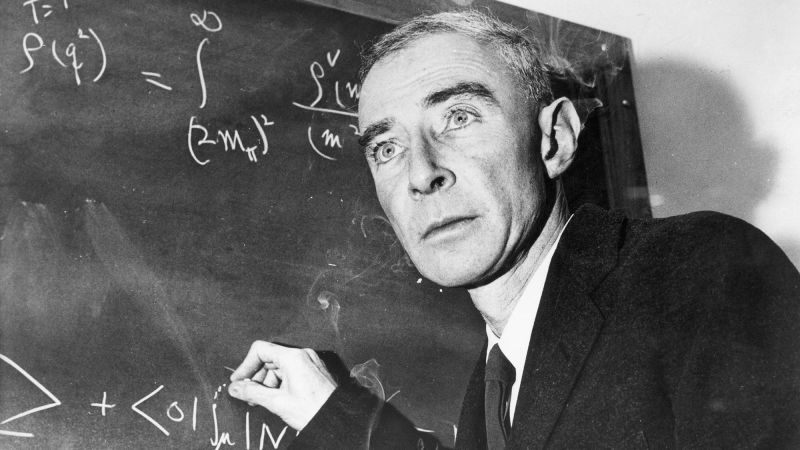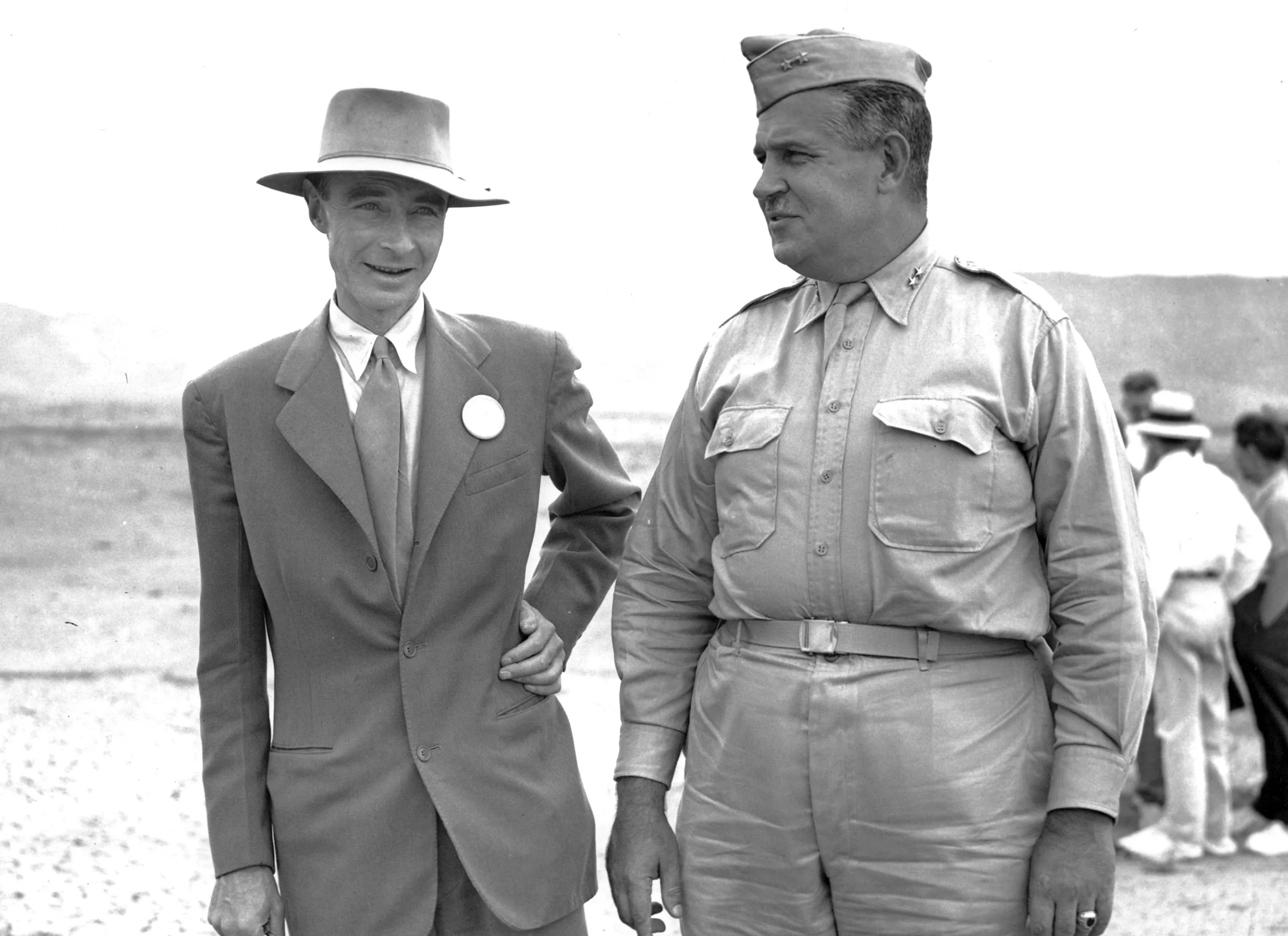Robert Oppenheimer Cause Of Death What Happened To is a search query related to the life of the theoretical physicist known for directing the Manhattan Project during World War II.
The query explores the circumstances surrounding Oppenheimer's later life, specifically the security concerns raised about his loyalty to the United States and his subsequent decline from prominence. Understanding his story provides insight into the complex interplay between scientific advancement, government secrecy, and the personal consequences of nuclear research.
This article will delve into the factors that contributed to Oppenheimer's downfall, including his controversial statements regarding nuclear weapons, his association with individuals linked to the Communist Party, and the political climate of the Cold War era.
Robert Oppenheimer Cause Of Death What Happened To
Understanding the key aspects surrounding Robert Oppenheimer's cause of death and the events leading to it provides a comprehensive view of his life and legacy. These aspects encompass not only the scientific and political factors but also the personal and ethical dimensions that shaped his journey.
- Manhattan Project - Directing the development of the atomic bomb.
- Atomic Bomb - Ethical concerns about the destructive power he helped unleash.
- Security Concerns - Alleged communist sympathies and associations.
- Loyalty Review Board - Hearings that questioned his loyalty to the United States.
- Revocation of Security Clearance - Loss of government trust and access to classified information.
- Later Career - Work in academia and advocacy for arms control.
- Legacy - Complex and controversial figure in nuclear history.
- Personal Life - Struggles with depression and alcoholism.
- Cause of Death - Throat cancer, possibly linked to radiation exposure.
Oppenheimer's story highlights the profound impact of scientific advancements on society, the ethical responsibilities of scientists, and the interplay between personal beliefs and political realities. His life serves as a reminder of the complex and often tragic consequences that can arise from the pursuit of knowledge and power.
Manhattan Project - Directing the development of the atomic bomb.
The Manhattan Project played a pivotal role in Robert Oppenheimer's cause of death. As the director of the project, Oppenheimer oversaw the development of the atomic bomb during World War II, a decision that would profoundly impact his life and legacy.
Oppenheimer's involvement in the Manhattan Project exposed him to high levels of radiation, which is believed to have contributed to his later development of throat cancer. Additionally, the ethical implications of creating such a devastating weapon weighed heavily on Oppenheimer's mind, leading to depression and alcoholism.
The Manhattan Project also brought Oppenheimer into contact with individuals suspected of communist sympathies, which raised concerns about his own loyalty to the United States. These concerns led to a security review and the eventual revocation of his security clearance, effectively ending his career in government and academia.
In conclusion, the Manhattan Project was a central factor in Robert Oppenheimer's cause of death, both physically and psychologically. His role in developing the atomic bomb had a profound impact on his health, reputation, and personal life.
Atomic Bomb - Ethical concerns about the destructive power he helped unleash.
As the director of the Manhattan Project, Robert Oppenheimer played a central role in the development of the atomic bomb, a decision that would profoundly impact his life and legacy. The ethical implications of creating such a devastating weapon weighed heavily on Oppenheimer's mind, leading to depression and alcoholism, and ultimately contributing to his cause of death.
- Moral Responsibility
Oppenheimer grappled with the moral implications of creating a weapon capable of mass destruction. He worried about the potential for nuclear proliferation and the threat it posed to humanity.
- Civilian Casualties
Oppenheimer was aware of the potential for civilian casualties from the use of atomic bombs. The bombings of Hiroshima and Nagasaki, which killed hundreds of thousands of people, deeply troubled him.
- Post-War Consequences
Oppenheimer also considered the long-term consequences of nuclear weapons, including the risk of nuclear war and the potential for environmental damage.
- Personal Struggles
The ethical concerns surrounding the atomic bomb took a toll on Oppenheimer's mental and physical health. He struggled with depression and alcoholism, and his relationships with friends and family suffered.
The ethical concerns that haunted Oppenheimer throughout his life highlight the profound responsibility that scientists have in the development and use of new technologies. His story serves as a reminder of the importance of considering the potential consequences of our actions, especially when those actions have the power to shape the future of humanity.
Security Concerns - Alleged communist sympathies and associations.
Robert Oppenheimer's alleged communist sympathies and associations played a significant role in his cause of death. During the Cold War era, there was widespread fear of communist infiltration in the United States, and Oppenheimer's past associations with known communists made him a target for suspicion.
In 1954, Oppenheimer's security clearance was revoked by the Atomic Energy Commission (AEC) after a lengthy hearing. The AEC cited Oppenheimer's "close and continuing association with communists" as one of the reasons for its decision. This effectively ended Oppenheimer's career in government and academia, and contributed to his depression and alcoholism.
The connection between Oppenheimer's security concerns and his cause of death is complex. On the one hand, the stress of the security hearings and the loss of his security clearance took a toll on Oppenheimer's mental and physical health. On the other hand, the stigma of being labeled a communist made it difficult for Oppenheimer to find work and rebuild his life. As a result, he turned to alcohol as a coping mechanism, which ultimately contributed to his death from throat cancer.
The case of Robert Oppenheimer is a cautionary tale about the dangers of political extremism and the importance of due process. It also highlights the devastating impact that security concerns can have on an individual's life and career.
Loyalty Review Board - Hearings that questioned his loyalty to the United States.
The Loyalty Review Board hearings that questioned Robert Oppenheimer's loyalty to the United States were a significant factor in his cause of death. The hearings, which took place in 1954, were part of a broader effort by the U.S. government to root out communist sympathizers during the Cold War era.
- Political Climate
The hearings were held at a time of heightened political tensions between the United States and the Soviet Union. McCarthyism, a campaign of anti-communist hysteria, was rampant in the United States, and many people were quick to accuse others of being communist sympathizers.
- Oppenheimer's Associations
Oppenheimer had been associated with a number of people who were known or suspected communists. These associations, combined with his own left-wing political views, led some to question his loyalty to the United States.
- Security Concerns
The U.S. government was concerned that Oppenheimer's communist sympathies might make him a security risk. They feared that he might share classified information with the Soviet Union or that he might even be a spy.
- Personal Toll
The hearings took a heavy personal toll on Oppenheimer. He was publicly humiliated and his reputation was damaged. The stress of the hearings also contributed to his depression and alcoholism.
The Loyalty Review Board hearings were a dark chapter in American history. They were based on unsubstantiated accusations and they destroyed the lives of many innocent people. Oppenheimer's case is a reminder of the dangers of political extremism and the importance of due process.
Revocation of Security Clearance - Loss of government trust and access to classified information.
The revocation of Robert Oppenheimer's security clearance in 1954 was a pivotal event in his life and career. It effectively ended his involvement in government and academic research, and contributed to his depression and alcoholism.
- Loss of Government Trust
The revocation of Oppenheimer's security clearance was a clear indication that the U.S. government no longer trusted him. This was a devastating blow to Oppenheimer, who had dedicated his life to serving his country.
- Loss of Access to Classified Information
The revocation of Oppenheimer's security clearance also meant that he lost access to classified information. This made it impossible for him to continue his work on nuclear weapons and other sensitive projects.
- Damage to Reputation
The revocation of Oppenheimer's security clearance damaged his reputation beyond repair. He was labeled a security risk, and many people were afraid to associate with him.
- Personal Toll
The revocation of Oppenheimer's security clearance took a heavy personal toll on him. He became depressed and alcoholic, and his health declined.
The revocation of Robert Oppenheimer's security clearance was a tragedy. It destroyed the career of one of the most brilliant scientists of his generation, and it contributed to his premature death.
Later Career - Work in academia and advocacy for arms control.
Robert Oppenheimer's later career was marked by a shift towards academia and advocacy for arms control. This shift was in part a response to the political climate of the Cold War era, which made it difficult for him to continue his work on nuclear weapons. However, it also reflected Oppenheimer's growing concerns about the ethical implications of his work and his desire to make a positive contribution to the world.
- Teaching and Research
Oppenheimer returned to academia after the war, teaching physics at the Institute for Advanced Study in Princeton, New Jersey. He also continued to conduct research on theoretical physics, although his work was now focused on more peaceful applications of science.
- Arms Control Advocacy
Oppenheimer became increasingly vocal in his opposition to nuclear weapons and the arms race. He testified before Congress on the dangers of nuclear war and called for international agreements to limit the spread of nuclear weapons.
- Public Speaking
Oppenheimer gave numerous public lectures and speeches on the dangers of nuclear weapons and the need for peace. He also wrote several books and articles on these topics.
- Consultancy and Advisory Roles
Oppenheimer served as a consultant to the U.S. government on scientific and arms control issues. He also served on the board of directors of the Federation of American Scientists and the Institute for Defense Analyses.
Oppenheimer's later career was dedicated to making amends for his role in the development of nuclear weapons. He became a leading advocate for arms control and peace, and his work helped to raise public awareness of the dangers of nuclear war.
Legacy - Complex and controversial figure in nuclear history.
Robert Oppenheimer's legacy as a complex and controversial figure in nuclear history stems from his pivotal role in the development of the atomic bomb during World War II, his subsequent advocacy for arms control, and the lingering questions surrounding his loyalty to the United States.
- Scientific Genius
Oppenheimer was a brilliant physicist who played a central role in the Manhattan Project, leading to the development of the world's first nuclear weapons. His scientific contributions revolutionized warfare and ushered in the atomic age.
- Atomic Bomb and Its Aftermath
Oppenheimer's involvement in the Manhattan Project and the subsequent bombings of Hiroshima and Nagasaki left a lasting impact on his conscience. He became an outspoken advocate for nuclear disarmament and international cooperation to prevent the further proliferation of nuclear weapons.
- Security Concerns and Loyalty
Oppenheimer's alleged communist sympathies and associations during the Cold War era raised concerns about his loyalty to the United States. These concerns eventually led to the revocation of his security clearance and effectively ended his government career.
- Legacy and Impact
Despite the controversies surrounding his life, Oppenheimer's contributions to science and his advocacy for nuclear disarmament have cemented his place in history. His legacy continues to be debated and studied, highlighting the complex and multifaceted nature of his impact on nuclear history.
Robert Oppenheimer's legacy as a complex and controversial figure in nuclear history serves as a testament to the profound influence of scientific advancements on society, the ethical responsibilities of scientists, and the interplay between personal beliefs and political realities. His life and work continue to spark discussions about the power of science, the dangers of nuclear weapons, and the importance of maintaining a balance between innovation and ethical considerations.
Personal Life - Struggles with depression and alcoholism.
The personal life of Robert Oppenheimer was marked by struggles with depression and alcoholism, which played a significant role in his overall health and well-being. These struggles were intertwined with the pressures and consequences of his involvement in the development of the atomic bomb and the subsequent political climate during the Cold War era.
- Emotional Toll of the Atomic Bomb
The immense responsibility and moral dilemmas surrounding the creation and use of the atomic bomb weighed heavily on Oppenheimer's mind. The devastation witnessed in Hiroshima and Nagasaki haunted him, contributing to feelings of guilt and depression.
- Political Scrutiny and Isolation
Oppenheimer's alleged communist sympathies and the subsequent security concerns raised against him led to public scrutiny and isolation. The loss of his security clearance and the damage to his reputation took a significant toll on his emotional state, pushing him towards alcohol abuse.
- Interpersonal Relationships
Oppenheimer's personal relationships suffered as a result of his depression and alcoholism. The strain on his marriage and the challenges in maintaining friendships contributed to his feelings of loneliness and isolation.
- Physical Health Consequences
Alcohol abuse and depression had severe consequences for Oppenheimer's physical health. Excessive drinking exacerbated his throat cancer, ultimately contributing to his premature death.
In conclusion, Oppenheimer's personal struggles with depression and alcoholism were deeply intertwined with the complexities of his professional life and the historical context of the atomic age. These struggles provide insights into the profound impact of personal choices, emotional burdens, and societal pressures on an individual's life and legacy.
Cause of Death - Throat cancer, possibly linked to radiation exposure.
Investigating the aspect of "Cause of Death - Throat cancer, possibly linked to radiation exposure" is crucial to understanding the complexities surrounding Robert Oppenheimer's demise. While his legacy is often defined by his scientific contributions and political controversies, his cause of death sheds light on the potential long-term consequences and health implications associated with his work.
- Radiation Exposure
Oppenheimer's involvement in the Manhattan Project and his proximity to nuclear tests exposed him to high levels of radiation, which have been linked to an increased risk of developing throat cancer.
- Smoking Habits
Oppenheimer was a heavy smoker, and smoking is a known risk factor for throat cancer. The combination of radiation exposure and smoking may have exacerbated the development of his cancer.
- Delayed Effects of Radiation
Radiation-induced cancers can take years or even decades to manifest, making it difficult to establish a direct causal link in some cases. Oppenheimer's throat cancer emerged over a decade after his involvement in the Manhattan Project, highlighting the long-term health risks associated with radiation exposure.
- Medical Treatment
Oppenheimer underwent extensive medical treatment for his throat cancer, including surgery and radiation therapy. These treatments may have contributed to or accelerated his decline in health.
In conclusion, Oppenheimer's cause of death - throat cancer, possibly linked to radiation exposure - serves as a sobering reminder of the potential health consequences of scientific advancements and the interplay between personal choices and occupational hazards. His case underscores the importance of understanding and mitigating the risks associated with radiation exposure and emphasizes the need for ongoing research into the long-term effects of radiation on human health.
In exploring the multifaceted aspects of "Robert Oppenheimer Cause Of Death What Happened To," this article has illuminated the intricate interplay between scientific advancements, personal struggles, and historical context. Oppenheimer's involvement in the Manhattan Project, his alleged communist sympathies, and the ensuing security concerns all contributed to his downfall, leading to depression, alcoholism, and ultimately throat cancer.
The article highlights the profound impact of radiation exposure on Oppenheimer's health, emphasizing the potential long-term consequences of scientific pursuits. It also underscores the importance of ethical considerations in scientific research and the delicate balance between innovation and personal responsibility. Oppenheimer's legacy serves as a reminder of the complexities of nuclear history and the enduring need for vigilance in safeguarding our collective future.
Kayleigh mcenany s net worth age wiki family
Pernell whitaker net worth
Daughter kristina sunshine jung net worth death released





ncG1vNJzZmign657ornSbGWdoZeewaK4zpycmqajpa6ksdJnmqilX6e8o7HRrWSoqKCau6mxyKacq2WTlsK0sYyonWaclZbBqXnWoZitZZiWvbGxzZ6bZqyfY7W1ucs%3D